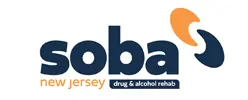5 Signs Your Child May Need Rehab
Written By:

Table of Contents
Rehab has such negative connotations that build a barrier for those that need substance abuse treatment. The premise of the word is hidden deep inside families. This is unfortunate because addiction is no longer a low-class issue. The elite, upper, and middle classes are the center of our heroin epidemic taking 150 lives per day.
Being a parent is no easy job. You worry about your children no matter what and try to raise them to make good choices. To a certain extent, kids will be kids. Most teens experiment with drugs and alcohol. Adolescence is an age where kids have limited impulse control and overly sensitive reward systems in their brains. But how do you know if it’s gone past harmless experimentation and they have become addicted to drugs?
If your son or daughter is exhibiting any of the following, or a combination of them, you may need to take an honest look at whether drugs or alcohol could be to blame. The National Institute on Drug Abuse (NIDA) lists many signs that your child may have a substance abuse problem, but here are five key red flags.
The 5 Signs Your Child May Need Rehab
1. They have been acting differently for no reason—such as acting withdrawn, angry, excessively tired, or depressed.
If drugs or alcohol are taking an increasing stronghold on your child’s life, you will likely know (at least on some intuitive level) that something is wrong. To a degree, most teenagers tend to withdraw from their parents and have mood swings. But these symptoms are exaggerated in teens that have a substance abuse problem. Hangovers and withdrawal symptoms can cause serious mood and behavior changes, that go beyond normal levels.
2. Major (and sudden) changes in peer-group or friends.
Another sign to look out for is large shifts in who your teen is spending their time with. If they seem to be spending less and less time with old friends or their normal peer group, and suddenly begin hanging out with all new people, it could be an indicator that they are taking on some new and risky behaviors as well.
3. A decline in academic performance.
Drugs and alcohol can be the biggest perpetrators of slipping grades and poor academic performance. Where your child may have once done really well in school, or even just maintain a stable GPA, they may now be showing signs of slipping. Failed tests, poor grades, and seeming indifference to schoolwork can all be a sign of a larger problem.
4. Missing classes or skipping school.
One major warning sign may come in the form of calls from their school. While you may not be able to observe it yourself, especially if your teen has a driver’s license (or friends with cars), skipping school and truancy are not good signs. If your child isn’t in school and is spending time with others who are also skipping school, there is a good chance they may be spending their days engaged in dangerous or risky behaviors. Ideally, your child’s school will alert you to these absences, so that the problem can be addressed at home, but sometimes the problem has already taken hold.
5. Loss of interest in favorite hobbies or activities.
Similar to losing interest in old friends, losing interest in favorite hobbies or activities can also signal trouble. Quitting sports teams or clubs, or discarding treasured hobbies or interests, means your teen is likely trying to make room in their schedule for different activities- and sometimes these take the form of drug and alcohol use. Also, the effects of drug and alcohol withdrawal can also cause physical side effects that can make your teen tired and not capable of participating in their normal activities.
If your teen is showing one or more of these signs, you may need to seek professional help or send them to inpatient rehab. The first step is usually to talk to your child’s doctor or talk to an addictions treatment professional for an assessment. Ultimately, some people are just predisposed to addictive behaviors, and your teen’s drug or alcohol use says nothing about how much you love them or have tried to support them. The important thing is that you remain calm, yet firm, and let your child know that you are there for them, but are going to ensure they get the help they need before it is too late.
Is SOBA New Jersey a good fit?
Chemical dependency may appear to be the problem, but it’s really just the solution one chooses to cope with the core problem. Addiction is a billboard that your life has become unmanageable. You can detox from drugs or alcohol, but that only addresses the symptom. If the underlying cause of your addiction goes unaddressed, it will continue to cause harm, relapse will likely occur, and the process starts all over again. Whether you are in college or not, our young adult drug rehab program is for you.
Phase One
In Phase I, our primary focus upon arrival of rehab is welcoming every new member. We help them recognize the safe, nurturing environment to get them open up and begin to take a look at reality, and begin to deal with it head on with professional support. As each new resident begins to assimilate into our community, we begin to fill the void of a life without purpose. We address the underlying problems which have crippled their success for a healthy, meaningful, and bright future.
Phase I begins with assimilation into the community. This is the time our new clients become comfortable with their peers. They establish their needs for treatment, experience adventure therapy, and attend the best AA meetings New Brunswick offers. This is the moment the change begins, allowing a person to build new connections with healthy young adults. They break free from the unhealthy habits of addiction they have known previous to their arrival. Everyone begins to build a new routine full of healthy decisions. We provide high-quality drug rehabilitation treatment with our primary therapist. The substance abuse program then uses a case manager to assure all their needs are being met.
Phase I is a crucial time of establishing change and implementing new behaviors to ensure a solid foundation of recovery.
Phase Two
https://www.youtube.com/watch?v=m9lF2US2gSg
In Phase II of our drug rehab program, the foundation is built for a well-rounded balance of future employment and higher education. Goals are established by closely working with Case Managers and Academic Advisers to find the correct path for the clients based on their talents, skills, and needs. Resume construction, interview coaching, job searches, enrollment assistance, and syllabus management are among the services we focus on for our Phase II clients.
In Phase II, clients also begin to develop their own autonomy. In addition to the clinical treatment they receive for drug and alcohol treatment, they perform necessary daily and weekly functions; everything from shopping for their own food to taking part in leisure and adventure activities of their choosing. They also work with a 12-step sponsor, work the 12 Steps, and attend meetings. Toward the end of this phase, the feelings of uneasiness and anxiety begin to be replaced by the excitement of the opportunities set before them.
Phase Three
https://www.youtube.com/watch?v=sPB2vnBah6Y
By the time clients reach Phase III, living sober has become second nature and we begin introducing a new focus: their continued success and future. As our clinical team continues with drug and alcohol treatment, clients begin taking classes and working in new jobs. This is where the rubber meets the road and a true plan of action for a transition to sustainable success begins.
This phase prepares them for the lifelong work that is associated with living sober. Clients who achieve this level of responsibility have new self-acceptance. They have come to understand and firmly believe in a new, fulfilling way of life. SOBA New Jersey graduates are willing and ready to face any and all of life’s challenges. They’ve also learned that a continuous process of overcoming these challenges is what it takes to lead the long and prosperous lives they desire.


